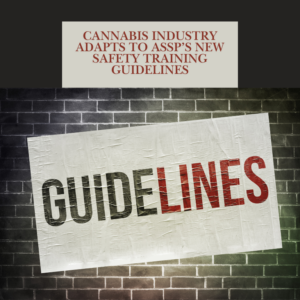Compliance and Risk Management Strategies for Cannabis Firms

The cannabis industry has experienced explosive growth in recent years, with legalization spreading across various states in the U.S. and beyond. However, as the market expands, so do the complexities associated with compliance and risk management. Cannabis firms face unique challenges due to the constantly evolving regulatory landscape, coupled with the inherent risks involved in operating a business within a historically stigmatized sector. This article explores effective compliance and risk management strategies that cannabis firms can implement to thrive in this dynamic environment.
Understanding the Regulatory Landscape
One of the most significant challenges for cannabis firms is the discrepancy between federal and state regulations. While some states have legalized cannabis for medical and recreational use, it remains classified as a Schedule I substance at the federal level. This duality creates a complex web of compliance requirements that firms must navigate carefully.
State regulations vary widely, covering everything from cultivation and processing to distribution and retail sales. Cannabis businesses need to stay informed about not only the laws in their state but also any changes that could impact their operations. This requires a robust compliance strategy that includes regular training for employees and constant monitoring of regulatory updates.
Licensing and Permitting
Obtaining the necessary licenses and permits is a fundamental step for any cannabis firm. The licensing process can be intricate and time-consuming, often requiring detailed documentation of business plans, security measures, and compliance protocols. To mitigate risks associated with licensing:
Conduct Thorough Research: Understand the specific licensing requirements in your state and locality.
Engage Legal Experts: Consider hiring attorneys who specialize in cannabis law to help navigate the complex application process.
Maintain Accurate Records: Keep comprehensive records of all communications and submissions related to licensing to ensure transparency and accountability.
Developing a Comprehensive Compliance Program
A strong compliance program is crucial for cannabis firms to avoid costly penalties and maintain their operating licenses. Key components of an effective compliance program include:
Policies and Procedures
Standard Operating Procedures (SOPs): Develop SOPs for every aspect of your business, from cultivation to retail sales. SOPs should clearly outline the processes to be followed, the responsible parties, and compliance checks to be conducted.
Employee Training: Regular training sessions should be conducted to ensure all employees understand the importance of compliance and are familiar with the relevant regulations. This includes training on handling products, inventory management, and customer interactions.
Code of Conduct: Establish a code of conduct that emphasizes ethical behavior and compliance. This document should be accessible to all employees and serve as a guideline for acceptable practices within the organization.
Monitoring and Auditing
Internal Audits: Conduct regular internal audits to assess compliance with regulations and company policies. These audits should evaluate all operational aspects, including financial records, inventory management, and employee practices.
Third-Party Compliance Reviews: Consider engaging external auditors or compliance consultants to conduct comprehensive reviews of your operations. Third-party assessments can provide an objective perspective and highlight areas for improvement.
Incident Reporting Systems: Implement a system for employees to report compliance issues or breaches anonymously. This encourages a culture of transparency and accountability, allowing for prompt resolution of potential problems.
Risk Management Strategies
In addition to compliance, cannabis firms must also focus on effective risk management strategies to protect their assets and ensure long-term sustainability.
Identifying Risks
Operational Risks: Assess the risks associated with daily operations, such as equipment failures, supply chain disruptions, and product recalls. Consider developing contingency plans to address these risks.
Financial Risks: The cannabis industry faces unique financial challenges, including limited access to banking services and fluctuating market prices. Firms should conduct regular financial analyses and develop strategies to mitigate these risks, such as diversifying revenue streams.
Legal Risks: Given the evolving legal landscape, cannabis firms must stay vigilant about potential changes in laws that could impact their operations. Engaging legal counsel for ongoing advice can help firms stay compliant and proactive.
Implementing Risk Mitigation Strategies
Insurance Coverage: Obtain comprehensive insurance coverage tailored to the cannabis industry. This may include general liability, product liability, crop insurance, and property insurance. Insurance can help protect against financial losses arising from unforeseen events.
Data Security Measures: Protect sensitive customer and business information through robust cybersecurity measures. This includes secure payment processing systems, data encryption, and employee training on data privacy best practices.
Crisis Management Plans: Develop crisis management plans to address potential emergencies, such as product recalls, regulatory investigations, or public relations crises. These plans should include communication strategies and designated response teams.
Building Relationships with Regulatory Bodies
Establishing positive relationships with regulatory agencies can significantly enhance a cannabis firm’s compliance efforts. Engaging with regulators can provide valuable insights into evolving regulations and best practices. Strategies for building these relationships include:
Active Participation: Attend industry conferences, workshops, and regulatory meetings to engage with policymakers and regulators. Active participation can help firms stay informed about changes in the regulatory landscape.
Transparency: Maintain open lines of communication with regulatory bodies. If compliance issues arise, being transparent and cooperative can foster trust and facilitate resolution.
Feedback Mechanisms: Provide feedback to regulators about the challenges faced by cannabis firms. By sharing insights and experiences, businesses can contribute to shaping more practical regulatory frameworks.
As the cannabis industry continues to evolve, effective compliance and risk management strategies are essential for success. Cannabis firms must navigate a complex regulatory landscape, develop robust compliance programs, and implement effective risk mitigation strategies to thrive. By staying informed, investing in training and resources, and fostering positive relationships with regulators, cannabis businesses can position themselves for sustainable growth in a dynamic market. Adopting these strategies not only helps firms avoid penalties and legal issues but also builds trust with customers and the communities they serve.











